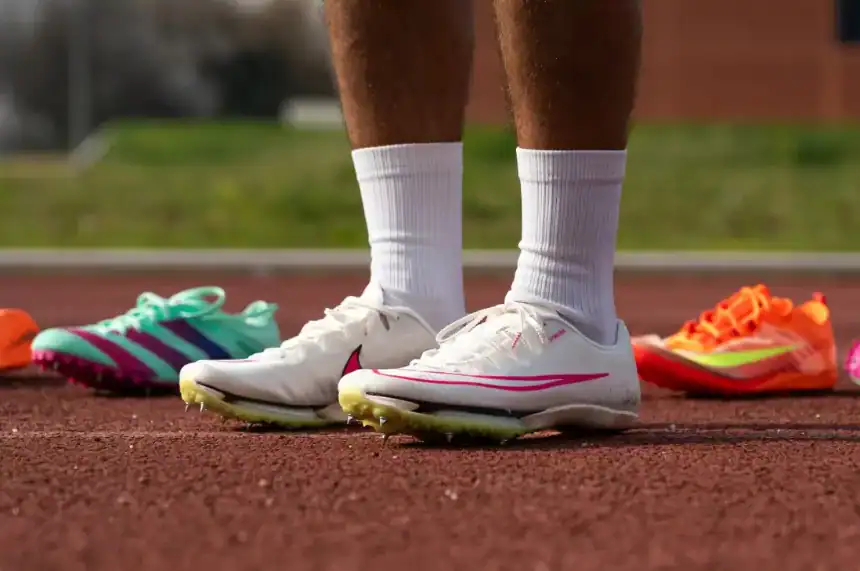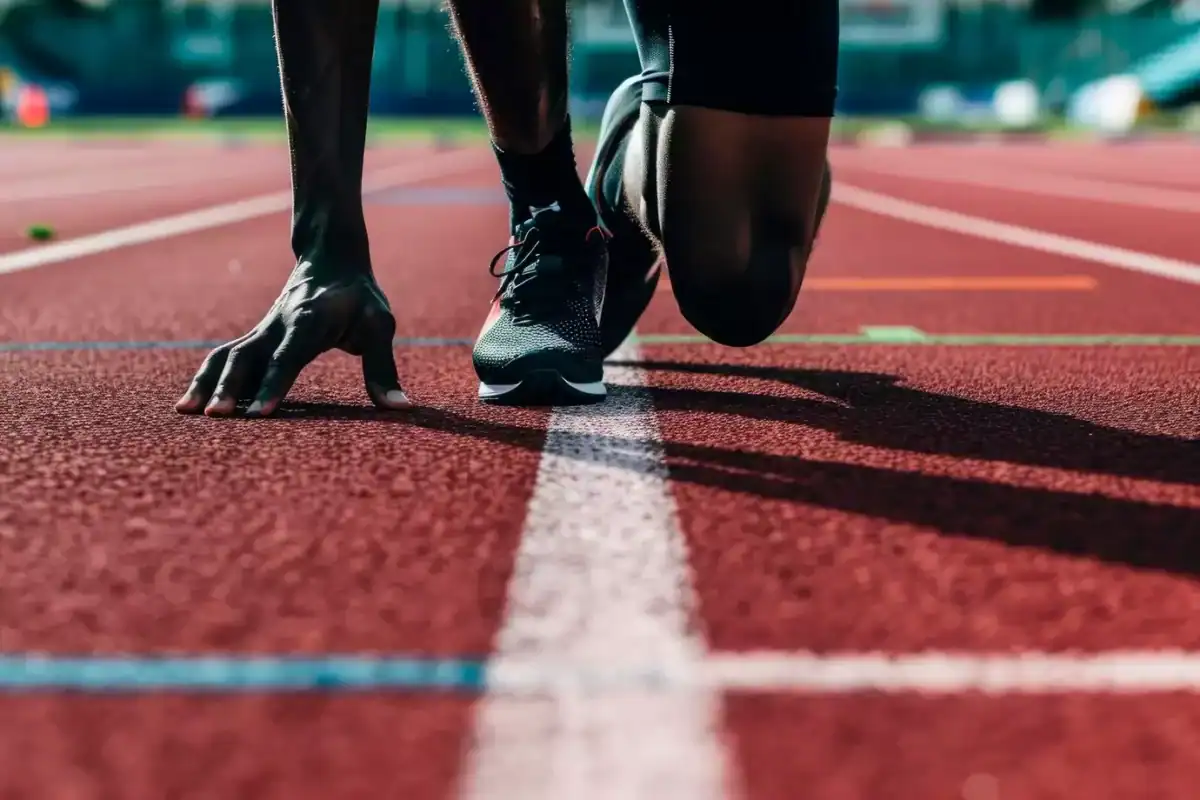Blog
Essential Guide to Choosing Track Spikes for Training Success in 2025

Training for track and field requires precision, dedication, and the right equipment. Among the essential tools for success, track spikes stand out as a critical investment for any athlete. Choosing track spikes for training can significantly enhance performance, improve grip, and reduce injury risk. As technology advances, 2025 introduces a new generation of track spikes designed to meet the evolving needs of athletes.
In this guide, we’ll walk you through everything you need to know about choosing the perfect track spikes for your training success.
Why Track Spikes Matter for Training
Track spikes are specialized shoes designed to optimize an athlete’s performance during training and competition. Unlike regular running shoes, track spikes provide:
- Enhanced Traction: Spikes dig into the track surface, offering superior grip and stability.
- Improved Speed: Lightweight materials and energy-efficient designs propel athletes forward.
- Event-Specific Support: Different spike configurations cater to specific track and field disciplines.
Training with the right spikes can help you simulate competition conditions, build strength, and improve your overall technique.
Key Considerations When Choosing Track Spikes
When selecting track spikes for training, it’s essential to consider several factors to ensure optimal performance and comfort.
1. Event Type
Track spikes are tailored to specific events. Understanding your focus area will guide your choice:
- Sprinting Spikes: Lightweight with stiff soles for maximum propulsion during short distances.
- Middle-Distance Spikes: A balance of speed and cushioning for events between 800m and 1500m.
- Distance Spikes: Prioritize comfort and durability for races longer than 3000m.
- Field Event Spikes: Reinforced designs for jumping, throwing, or other specialized field events.
2. Track Surface
Different tracks demand specific spike configurations:
- Synthetic Tracks: Opt for spikes with a sharp design for enhanced grip.
- Outdoor Tracks: Durable spikes designed to handle varying weather conditions.
3. Spike Configuration
Spikes come in various numbers and placements, affecting grip and performance:
- 4 to 6 Spikes: Ideal for sprinters requiring maximum traction.
- 6 to 8 Spikes: Suitable for middle-distance and long-distance runners.
4. Comfort and Fit
A well-fitted shoe prevents discomfort, blisters, and injuries:
- Ensure a snug fit without pressure points.
- Leave enough room for toe movement without excess space.
Innovations in Track Spikes for 2025
The track spikes of 2025 bring advanced technology and materials, offering athletes unmatched benefits:
- Carbon Fiber Plates
Integrated carbon fiber plates enhance energy return, allowing athletes to maintain speed with reduced effort. - Eco-Friendly Materials
Sustainability is a key focus in 2025, with clavos de pista made from recycled and biodegradable materials. - Customizable Spike Lengths
Athletes can now adjust spike lengths to suit specific training conditions, maximizing versatility. - Lightweight and Breathable Uppers
Innovative fabrics provide a second-skin fit, keeping feet cool and reducing fatigue during intense training sessions.
Benefits of Training with the Right Track Spikes
Using the right spikes for your training regimen offers several advantages:
- Improved Technique: Spikes help athletes practice proper foot placement and stride efficiency.
- Enhanced Strength: The added resistance of spikes builds muscle strength and power.
- Reduced Injury Risk: Event-specific designs minimize strain on muscles and joints.
- Simulated Competition Conditions: Training with spikes prepares athletes mentally and physically for race-day performance.
How to Choose the Perfect Track Spikes
Follow these steps to find the ideal track spikes for your needs:
- Analyze Your Training Goals
Determine your primary focus: speed, endurance, or technique improvement. - Try Before You Buy
Visit a store to try on different models. Pay attention to fit, comfort, and overall feel. - Consult Your Coach
Coaches can provide valuable insights based on their experience and understanding of your training plan. - Check Product Reviews
Look for reviews to understand how specific spikes perform under real-world conditions.
Caring for Your Track Spikes
Proper maintenance ensures that your track spikes remain effective and last longer:
- Clean After Every Use
Remove dirt and debris to maintain spike sharpness and shoe integrity. - Inspect Regularly
Check for signs of wear, such as dull spikes or worn soles. Replace components as needed. - Store Properly
Avoid exposing your spikes to extreme temperatures. Store them in a cool, dry place. - Replace Spikes When Needed
Dull spikes lose their grip, so replace them regularly to maintain performance.
TrackSpikes: Your Partner in Training Success
At TrackSpikes, we understand the importance of choosing the right footwear for training. Our 2025 collection features state-of-the-art track spikes designed to meet the needs of sprinters, distance runners, and field athletes alike. With lightweight materials, customizable features, and eco-friendly designs, TrackSpikes shoes are your ultimate training partner.
Conclusión
Choosing the right track spikes is a vital step toward achieving your training goals. By considering factors like event type, track surface, and comfort, you can select spikes that enhance your performance and keep you injury-free.
With the advancements of 2025, the possibilities are endless. Equip yourself with the best gear, train smarter, and unlock your full potential.
Shop TrackSpikes today and discover the perfect track spikes to power your training success. Your journey to excellence starts here!













